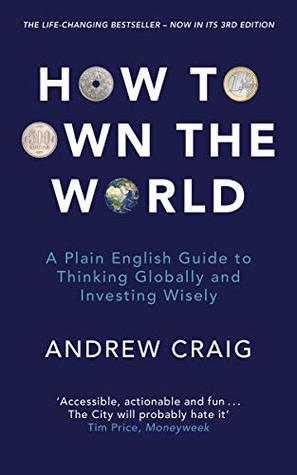More on this book
Community
Kindle Notes & Highlights
by
Andrew Craig
Read between
December 1, 2024 - January 4, 2025
If you are under the age of about 50, there is no chance that you will receive a government-funded pension you can actually live on after retirement.
most of the time, fundamentally expensive shares are more likely to lose you money than make you money and, most importantly, you will do well to understand how to work out whether a share is expensive or not before investing.
It is only because so many people involved in financial markets do not know what they are doing that so many lose money and come to believe it is ‘risky’ or ‘a casino’.
‘exogenous shock’
fallacious
self-invested personal pension, or SIPP.
had it not been for the creation of the stock market and the funding it provided, there would be few large commercial buildings, no aviation and no automotive industry or roads; no extraordinary improvement in medicine and healthcare; few if any of the small daily luxuries that we take for granted (toothpaste, toilet roll, running water, inexpensive clothing, newspapers, televisions); no film and entertainment industry; and no opportunity to assemble a meal comprising ingredients from every corner of the earth from your local supermarket (Italian olive oil, Argentinian wine, Scottish steak –
...more
There would, however, very likely have been significantly more war.
the stock market has quite demonstrably been one of the greatest inventions in human history. It has lifted billions out of poverty, saved them from malnutrition and increased short lifespans; it has increased our comfort and given us more leisure time and travel, and has been largely responsible for making the world a fundamentally more peaceful, interesting and healthy place.
an unattractive feature of stock market capitalism can be significant wealth inequality
The P/E ratio is arguably the single most important thing you will ever learn about shares.
Smart beta funds aim to give you the performance of an active fund for the fees of a passive fund, and you should certainly consider them once you are ready to invest.
exchange traded funds and investment trusts.
open-ended investment companies (OEICs) or unit trusts.
the initial charge, the annual management charge (AMC), and the total expense ratio (TER) – now more frequently called the ongoing charges figure (OCF).
move
As Warren Buffett has said: ‘Only when the tide goes out do you discover who has been swimming naked.’
suggest there are that three things
In general, I would suggest that you allocate 60 to 70 per cent of whatever you are able to invest monthly into owning the world, 10 to 20 per cent into owning inflation, and keep the rest in cash.
when you start saving, you should keep 100 per cent of your savings in cash until you have built up a ‘rainy day’ pot, which can cover you for a certain amount of time if you were to lose your job.
As you get older you should be thinking more about the return of your money than the return on your money.
money illusion, anchoring and the endowment effect. As a quick reminder: money illusion refers to our tendency to ignore inflation (particularly real inflation) when assessing the value of something; anchoring concerns how people are inclined to give too much weight to their recent experience (ignoring what actually happens in the long term); and the endowment effect is where individuals demand more for something than they would be willing to pay for it themselves (and are unwilling to acknowledge that their asset is worth less than it was previously).


